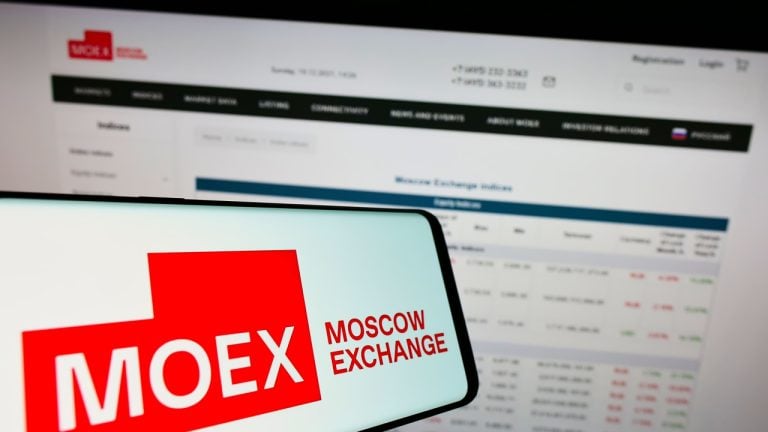
The Moscow Exchange has proposed to legalize the issuance of receipts for digital financial assets. The trading platform says this will allow custodians to offer clients who are not ready for distributed ledgers to essentially work with securities. MOEX also plans to become a licensed crypto exchange operator.
Largest Russian Stock Exchange Gears Up to Enter Digital Asset Market
The leading exchange for equities and derivatives in Russia has drafted new legislation that would authorize depositories to issue receipts for digital financial assets (DFAs). In current Russian law, the broad term ‘DFAs’ encompasses cryptocurrencies in the absence of a more precise definition, but mainly refers to digital coins and tokens that have an issuer.
Under such arrangement, DFA receipts can be traded as securities, explained Sergey Shvetsov, who heads the supervisory board of the Moscow Exchange (MOEX). During the latest edition of the International Banking Forum, the official emphasized that the exchange “will naturally enter this market” and stated:
We have prepared a project that allows you to issue receipts for digital assets, then these receipts are circulated as securities.
MOEX has already filed the respective bill with the Central Bank of Russia (CBR) and will also coordinate the initiative with the Ministry of Finance. The legislation will provide those who are not ready to work with distributed ledgers and afraid of custodial risks an opportunity to transfer these risks and be able to issue securities, Shvetsov added.
“In order for DFAs to develop, we want to propose that the market itself makes the choice – blockchain accounting or depositary accounting,” he further elaborated, reminding the audience that the Moscow Exchange also wants to obtain a license from the CBR to operate as a digital asset exchange. In August, MOEX announced its intention to launch a DFA-based product by the end of the year.
“If such a law is adopted, Russian depositories will be able to accumulate DFAs on their accounts in the blockchain and give receipts against them to their clients. As soon as a customer needs the underlying asset, he would cancel the receipt and receive his digital asset on his blockchain account,” Shvetsov was quoted as saying by the Prime business news agency.
Support has been growing in Moscow to permit the use of digital assets such as cryptocurrencies for international settlements amid sanctions, while it’s still unclear if regulators will allow their free circulation inside the country. In any case, Russia must create its own crypto infrastructure, according to the head of the parliamentary Financial Market Committee. Anatoly Aksakov recently said that the stock exchanges in Moscow and Saint Petersburg are ready to provide it.
Do you expect the Moscow Exchange to become a major player in Russia’s crypto market? Share your thoughts on the subject in the comments section below.
from Bitcoin News https://ift.tt/wcAFasS
Comments
Post a Comment